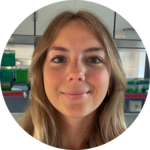Rasche Group
Dissecting Multiple Myeloma and its Microenvironment
Multiple Myeloma is the most common cancer of the bone marrow (BM). Despite significant improvement in overall survival, most patients develop refractory disease and myeloma remains largely incurable. Myeloma is the paradigm of a tumor in its microenvironment. Similar to healthy plasma cells, myeloma cell survival is dependent on specific cell-cell interactions with non-malignant cells in the BM. This interplay takes place in the plasma cell survival niche, a poorly characterized micro-anatomical structure along the BM capillaries. In this niche, oxygen supply and nutrients are restricted, which creates a unique metabolic environment. Our group explores this multicellular ecosystem using state of the art technology with the aim to develop novel treatments for myeloma.
Select publications
Da Vià MC, Dietrich O, Truger M, Arampatzi P, Duell J, Heidemeier A, Zhou X, Danhof S, Kraus S, Chatterjee M, Meggendorfer M, Twardziok S, Goebeler ME, Topp MS, Hudecek M, Prommersberger S, Hege K, Kaiser S, Fuhr V, Weinhold N, Rosenwald A, Erhard F, Haferlach C, Einsele H, Kortüm KM, Saliba AE, Rasche L, Homozygous BCMA gene deletion in response to anti-BCMA CAR T cells in a patient with multiple myeloma. Nature Medicine. 2021 Feb 22
Our group was first to describe homozygous deletions encompassing the BCMA locus on chromosome 16p as a resistance mechanism to Idecabtagene-vicleucel in a patient with relapsed refractory myeloma. Furthermore, we identified the same mechanism of resistance in a patient treated with anti-BCMA bispecific antibodies (Rasche et al, EHA 2021, manuscript accepted in Blood Adv). Our findings revealed the rare existence of chromosome 16 aberrations before and after BCMA-targeting immunotherapies, thereby linking genomic instability to escape from targeted immunotherapies.
Rasche L, Chavan SS, Stephens OW, Patel PH, Tytarenko R, Ashby C, Bauer M, Stein C, Deshpande S, Buzder T, Molnar G, Zangari M, van Rhee F, Thanendrarajan S, Schinke C, Epstein J, Davies FE, Walker B, Barlogie B, Meissner T, Morgan GJ, Weinhold N. Spatial Genomic Heterogeneity in Multiple Myeloma Revealed by Multi-Region Sequencing, Nature Communications. 2017 Aug 16
We used CT-guided focal lesion biopsies together with paired iliac crest biopsies in 51 patients to investigate the spatial genomic architecture in multiple myeloma. We demonstrated spatial genomic heterogeneity in more than 75% of patients, including aberrations in known myeloma driver genes such as TP53 or BRAF. Our study highlighted focal lesions as hotspots of myeloma evolution and spatial heterogeneity as a challenge for risk stratification and personalized treatments.
Rasche L.*, Angtuaco E*, McDonald JE, Buros A, Stein C, Pawlyn C, Thanendrarajan S, Schinke C, Samant R, Yaccoby S, Walker B, Epstein J, Zangari M, van Rhee F, Meissner T, Goldschmidt H, Hemminki K, Houlston R, Barlogie B, Davies FE, Morgan GJ, Weinhold N. Low expression of hexokinase-2 is associated with false-negative FDG-positron emission tomography in multiple myeloma. Blood. 2017 Apr 21 *contributed equally
In a study with matched-simultaneous FDG PET and Diffusion-weighted MRI scans of 227 patients, we identified 11% of patients with extensive disease according to MRI but reported as being disease free on FDG PET (“PET false-negative”). Focusing on tumor cells, we performed a differential gene expression analysis to unravel the biological underpinnings of this phenomenon. The gene coding for hexokinase-2, which catalyzes the first step of glycolysis, was significantly lower expressed in PET false-negative cases (5.3-fold change, P < .001) which provides a mechanistic explanation for this feature. This study highlighted functional imaging to decode tumor biology in multiple myeloma, and a number of alternative tracers to FDG are currently under investigation.


Leo Rasche

Junior Group Leader
Leo Rasche, MD, attended medical school at the University of Würzburg in Germany and earned his MD in 2009, with the focus on experimental pathology, where he subsequently completed his residency in internal medicine and was a consulting specialist in internal medicine and hematology/oncology. Between 2016 and 2018 he has been a postdoctoral fellow at the Myeloma Institute at the University of Arkansas for Medical Sciences in Little Rock, where he studied medical imaging, tumour genomics, tumour evolution, and immunotherapy approaches for treating multiple myeloma. In 2018 he was appointed an assistant professor of research at the University of Arkansas for Medical Sciences. In summer 2018, Dr Rasche returned to Germany where he serves as an attending physician on the myeloma service at the University hospital of Würzburg.
Nazia Afrin

PhD Student
Nazia completed her Bachelor’s in ‘Mathematics’ and obtained a Master’s in ‘Applied Mathematics’ in Bangladesh. During this time she developed a passion for the life sciences.
Therefore, she made a decision to pursue a second Master's program in ‘Computational Modeling and Simulation’ at the Technical University Dresden with a focus on ‘Computational Life Science’.
In July 2022, she started her PhD in Dr. Leo Rasche's research group at the MSNZ in Würzburg.
Hanna Fischer

Technician
Hanna completed her MTLA training at the University of Würzburg in 2024. Since September 2024 she works at the MSNZ as a technician for the AG Rasche.
During her training she already gained experience in immunohistochemistry, cell culture and RNA isolation. Her main tasks in Leo Rasche's group are histology, cell culture, FACS and general laboratory organization.
Moutaz Helal

PhD Student
Moutaz obtained his bachelor’s degree in pharmacy in Egypt where he developed a deep interest in cancer research. Thus, he decided to pursue his master’s in the field of molecular oncology within the biochemistry program of the University of Würzburg.
He joined the MSNZ as a Master’s student and started his PhD project in October 2021. The project is focused on investigating stroma-mediated chemoresistance mechanisms in breast cancer and multiple myeloma utilizing state-of-the-art single-cell high-throughput sequencing techniques.
Mara John

PostDoc
Mara studied Human Biology (Biomedical Science) with focus on tumour biology in Marburg at the Philipps-University. In October 2020 she started her PhD in the labs of Dr Angela Riedel and Dr Leo Rasche at the MSNZ in Würzburg.
Her project focuses on multiple myeloma, particularly tumor and microenvironmental heterogeneity. One of her key aims is to characterize the T-cell niche, paying particular attention to the impact of chemotherapy on the niche. To achieve this, she employs multi-color flow cytometry and methods to evaluate cellular bioenergetic states, as well as spatial transcriptomics.
Zahra Salehi

PostDoc
Zahra studied Molecular Biology and Biotechnology for her PhD at León University (Spain). Then she completed her postdoc at the Department of Cell Biology of St. John’s University (USA).
In May 2024, she joined Dr. Rasche’s group at the University Hospital of Würzburg as a postdoctoral fellow to investigate on the hematological neoplasm of multiple myeloma. Her project is focused on the dormant multiple myeloma cells, which are correlated with chemotherapy resistance, recurrence and metastasis. Using multi-color flow cytometry and single-cell high throughput sequencing she aims to identify the unique biomarkers and transcriptome signatures associated with dormant multiple myeloma cells in order to design new therapeutic ways for eliminating these cells.
Emilia Stanojkovska

Technician
Emilia finished her MTLA training in 2017 at the Johannes Gutenberg-University in Mainz. Since June 2020 she work at MSNZ as a TA for the group of Dr Leo Rasche.
Emilia’s fields of expertise include cell culture, flow cytometry and histology. She is furthermore involved in the management and organization of the lab.
You can find us here:
Institute for Virology and Immunobiology
MSNZ
Versbacher Str. 7
97078 Würzburg






